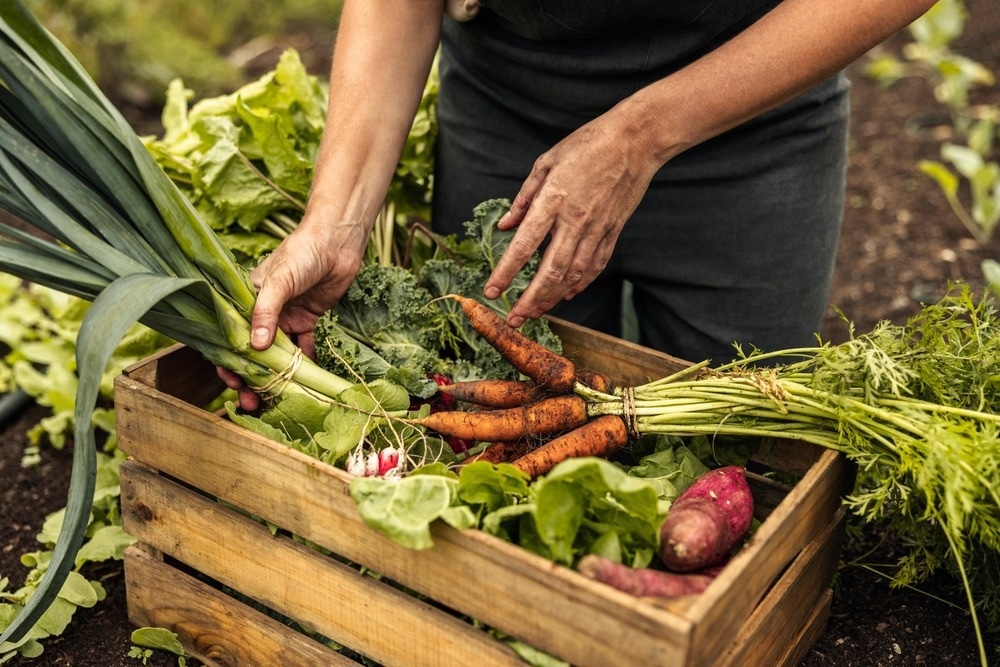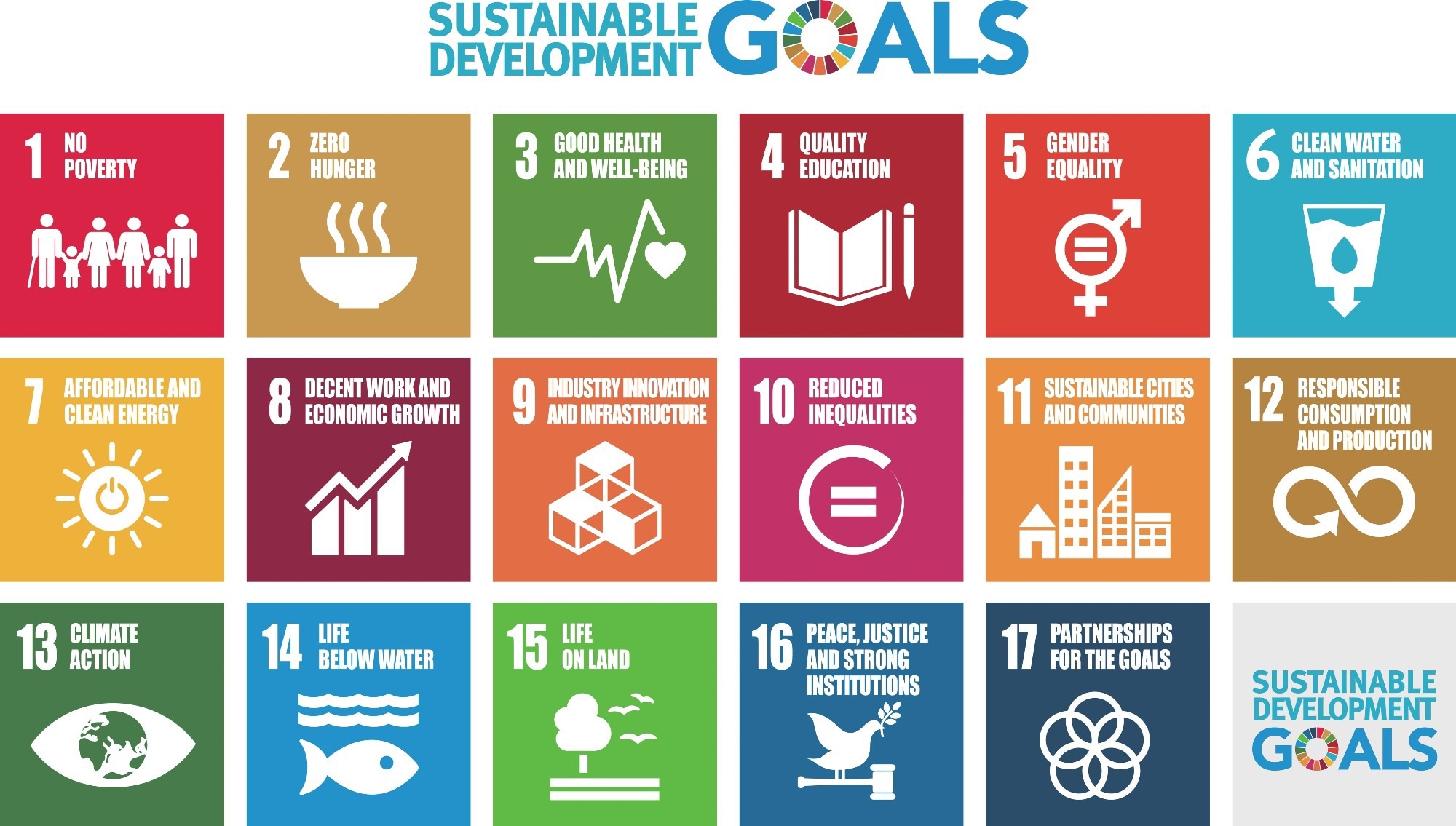The Sustainable Development Goals (SDGs) are closely linked with the food industry, and achieving such goals depends on many facets of food production. Despite the persistence of obstacles, emerging solutions are enabling effective progress toward SDG targets, which will contribute toward more sustainable, equitable, and healthy practices for food production.

Sustainable food. Image Credit: Jacob Lund/Shutterstock.com
Links Between the Food Industry and Sustainable Development Goals
The 2030 agenda for sustainable development, aiming to end poverty and achieve sustainability, was adopted in 2015 by the United Nations. To accomplish these goals over the 15-year target, the UN designed 17 Sustainable Development Goals (SDGs) consisting of 169 targets that are to be monitored continuously using indicators to ensure they are achieved. The SDGs range from the elimination of poverty (SDG 1) to climate action (SDG 13) and global cooperation (SDG 17), and encompass many facets from education to industrial action.
The contribution of the food industry to the SDGs has been a subject of particular interest since the onset of the targets because food production is closely associated with many of the SDGs. Specifically, food production is directly linked to 8 of the 17 goals including SDG 2 (no hunger), 3 (good health), 6 (clean water and sanitation), 8 (economic growth), 10 (responsible production), 14 (life below water), 15 (life on land), and 17 (partnership). However, food production can also be more loosely associated with the remaining 7 goals, resulting in the food industry contributing to or influencing all of the SDGs.
As a result, countries and institutions have rallied around food production through investments, collaboration, and education, to achieve many of the SDGs. In July 2021, 190 countries took place in a pre-summit to discuss the role of Food Systems for the SDGs, which was further elaborated upon in September 2021 as part of the Food Summit Decade of Action to achieve the Sustainable Development Goals.
The summits resulted in the analysis of indicators. These indicated that food systems have more indirect than direct connections to SDGs, as observed by the Food and Agriculture Organization, but that food systems remain a central influence in achieving the majority of the SDGs.
Circular Economy – a Key Factor to Reaching the SDGs
Policies relating to the food industry have been developed to aim for maximum effectiveness, meaning that they aim to contribute toward as many SDGs as possible with overarching strategies for food production. For instance, the use of a circular economy in food production systems may benefit a large number of SDG targets. This was further discussed in a 2019 study by Fassion and Tekko.
The authors of the study ran a systemic analysis of case histories evaluating the actions of 40 circular economy actions and their relationships with SDGs. The study objective was to assess the economic, social, and environmentally sustainable development dimensions of the food system.
Overall, findings showed that circular economy principles within the food industry may support SDG targets, contribute toward most SDGs, and represents a “perfect field for testing a new approach to raw material and waste and for the development of a new context of inquiry, defined as Circular Economy for Food”.
The strategic importance of food and its potential in achieving SDGs was further echoed in a 2021 paper by Djekic et al., who reviewed the role of the food supply chain stakeholders in achieving specific SDGs. The authors highlighted the integral significance of food production for SDGs 2,12, and 17, and emphasizes the need for a “deeper intertwining of the goals and all stakeholders in the food supply chain continuum”.
Therefore, the food industry represents an area that is primed for better collaboration, to design objectives addressing multiple SDGs simultaneously, and achieve better progress towards and potentially exceeding SDG targets.

Sustainable development goals. Image Credit: checy/Shutterstock.com
The Conflicts Between Food Production and SDGs, their Consequences, and Potential Solutions
Despite the close links and significant contributions of food production to the SDGs, key challenges persist in effectively achieving targets. One major issue is the progress of SDGs that are detrimental to other targets. Economic growth (SDG 8) is one such example, as it may interfere directly with targets of sustainability (e.g. SDGs 13,14,15) that promote more ecological values.
This was further discussed in a 2019 study by Ho et al., which presented the case of freshwater resources including lakes and reservoirs. Authors argue that such reservoirs are key contributors to environmental goals (SDGs 6,13,14,15) but pose a direct conflict with socioeconomic goals (SDGs 1,2,3,8) that require the exploitation of such resources. Indeed, such areas are key for fisheries, aquaculture, and the irrigation of agricultural lands, as well as recreation, transport, and wastewater treatment.
These conflicts can eventually accumulate and lead to the interrupted progress of particular goals while other goals are pursued instead. This is a significant concern as policymakers and stakeholders may pursue economically valuable goals and bypass any other targets that may be in conflict with those. In turn, nations may result in highly varied progress towards each SDG by 2030.
Nevertheless, solutions are emerging that may overcome conflicts. The authors of the 2019 study proposed 22 new indicators that can be used by decision-makers for monitoring and assessing the sustainable development of lakes and reservoirs. These indicators span different SDGs and take multiple dimensions into account, encompassing socioeconomic and environmental factors alike.
Further solutions involve the integration of multi-SDG solutions, such as technological advances. This was discussed in a 2021 paper by Jambrak et al., who offered smart alternatives (operated by automated systems) based on virtual operations using big data analysis and monitoring, as opportunities to bypass conflicts between environmental, social, and economic dimensions.
Specifically, smart technology in food systems may save energy during food processing, optimize environmental performance, lower manufacturing costs, provide eco-friendly products, ensure higher levels of health and safety during food processing and ensure better working conditions.
Ultimately, achieving SDGs provides the opportunity to improve food production and ensure food security. Addressing challenges and issues will contribute toward achieving and extending SDG targets, as policies may consider timelines beyond 2030. Achieving SDGs is central for current and future generations while also caring for environmental systems, and is therefore a pivotal movement toward better ways of living for human populations.
Sources
- Djekic, I., Batlle-Bayer, L., Bala, A., Fullana-i-Palmer, P., & Jambrak, A. R. (2021). Role of the Food Supply Chain Stakeholders in Achieving UN SDGs. Sustainability, 13(16), 9095. https://doi.org/10.3390/su13169095
- Fassio, F., & Tecco, N. (2019). Circular Economy for Food: A Systemic Interpretation of 40 Case Histories in the Food System in Their Relationships with SDGs. Systems, 7(3), 43. https://doi.org/10.3390/systems7030043
- Ho, L. T., & Goethals, P. L. M. (2019). Opportunities and Challenges for the Sustainability of Lakes and Reservoirs in Relation to the Sustainable Development Goals (SDGs). Water, 11(7), 1462. https://doi.org/10.3390/w11071462
- Režek Jambrak, A., Nutrizio, M., Djekić, I., Pleslić, S., & Chemat, F. (2021). Internet of Nonthermal Food Processing Technologies (IoNTP): Food Industry 4.0 and Sustainability. Applied Sciences, 11(2), 686. https://doi.org/10.3390/app11020686
Further Reading
Last Updated: Oct 5, 2022